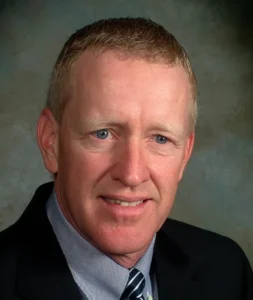For those who are Catholic, or at least have an interest in the fate of the Catholic Church in our contemporary political environment, Chad Pecknold has an interesting piece over at Ethika Politika where he encourages us to think about the proper ordering of religious and political beliefs. Such reflection will necessarily force us to face the limits of political life. From his essay:
Ours is not only a polarized politics, it is also an excessive politics. It dominates every aspect of life. Political campaigns have learned to carefully cultivate every existing identity for itself, and only for itself. It has come to take over every aspect of life so there is no place where presidential politics is absent. I think this excessiveness is an enduring aspect of every politics that detaches itself from natural limits, that consistently refuses to allow space to that which is not politics, that refuses to admit that there is anything prior to politics, that habitually ignores anything which supersedes politics, and which denies anything which is not reducible to politics.
Compare this, for example, to the President’s inaugural address where, in the context of ruminating about America as an exceptional nation, the President said:
America’s possibilities are limitless, for we possess all the qualities that this world without boundaries demands: youth and drive; diversity and openness; an endless capacity for risk and a gift for reinvention. My fellow Americans, we are made for this moment, and we will seize it — so long as we seize it together.
Political rhetoric, at some level, but also an idea that informs so much of our politics. Why else would the President say that we can get by without reforming the major entitlement programs? The thrust of the speech was to absorb all forms of authority and association into governmental operations. Pecknold’s meditation is a useful reminder that the real issues of political life are issues of scale and limits, but those are precisely the things that are not being discussed. But limits will make themselves felt, if not through catastrophe then at least through some pushback when state authority tries to go too far. For this reason if for no other the HHS mandate battle ought to be of interest to everyone.





2 comments
Siarlys Jenkins
I would certainly agree that politics should NOT dominate every aspect of life. In fact, the limitations on government powers in our constitutions reflects a philosophical commitment to that very principle. However, just as “Political campaigns have learned to carefully cultivate every existing identity for itself,” the Roman Catholic Church has LENT ITSELF to this political over-reach, by seeking to dominate quintessentially political decisions, and cultivating a political position for its spiritual identity.
The HHS mandate is not a constitutional question, nor a question of freedom of religion. Nobody is forcing any church to hand out condoms or host abortion clinics. Its about the obligations of EMPLOYERS OF EMPLOYEES to provide benefits as compensation for labor performed, and not to impose the values of the employer upon the employee.
The Roman Catholic Church could avoid this quandary by staffing its hospitals and colleges and social service agencies entirely with members of religious orders… but, oh dear, there aren’t enough of those to go around any more, barely enough to staff the administrative offices, so they HIRE employees who are there for the paycheck, possibly for the professional practice, but not for the Glory of God. They owe those employees the same as any other employer owes employees.
Chris Travers
I am not a Catholic or even a Christian but the essay as a whole rings very much true for me. one of the real problems is that the emerging dynamic has become, as I put it, the parties against the people. The citizens are now marginalized with manufactured controversies so that the people is without a real substantive place in the democratic system, while the same group of people pulls the strings of both parties.
At some point every honest Catholic, every honest Heathen, and ever honest member of every other religion will have to come to the realization that as human beings we are in the same place here and that the level of centralization of power in the hands of the puppetmasters is both unhealthy and necessary to oppose. Most people, however, believe the convenient fictions that we have a democratic, two party system. This illusion is becoming harder to maintain…
Comments are closed.